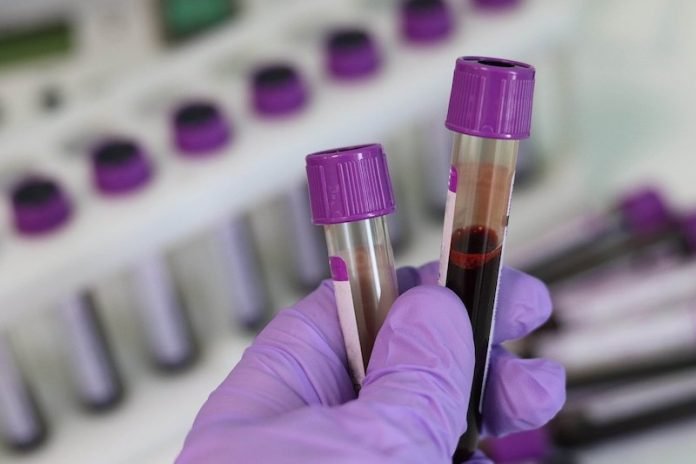
In a recent study at the University of Kentucky, researchers found answers for why so many COVID-19 patients experience thrombosis or the formation of blood clots that obstruct blood flow through the circulatory system.
They found that localized inflammation in the lungs caused by COVID-19 may be responsible for the increased presence of blood clots in patients.
The study also provides evidence suggesting the risk of thrombosis could persist after the infection clears.
One researcher in the study is Jeremy Wood.
In the study, the team examined the blood of 30 COVID-19 patients, including 15 who were inpatients in the intensive care unit, and 15 who received care as outpatients, along with 8 disease-free volunteers who acted as a control group.
They found compared to baseline, the COVID-19 patients had higher levels of tissue factor, a protein found in the blood that initiates the clotting process.
Patients also had reduced levels of protein S, an anticoagulant that helps prevent blood clotting.
The researchers concluded that lung inflammation caused by COVID-19 is what leads to a decrease in protein S.
This inflammation also causes immune and possible endothelial cell activation, which leads to increased tissue factor protein.
The team says that the clotting is not caused by anything systemic. Localized inflammation in the lungs is what’s driving this whole process.
With an increase in tissue factor and a deficiency in protein S, COVID-19 patients get more blood clotting without the ability to shut it down or control it.
The study additionally showed that protein S levels remained low in some patients even after they tested negative for COVID-19, which suggests that blood clotting issues may persist after infection and long-term monitoring of thrombotic risk may be necessary.
The team says this preliminary data could be a cause for concern.
Certain viruses like HIV are linked to a long-term deficiency in protein S, which causes an ongoing risk of thrombosis in patients. It is not yet known if COVID-19 could cause a similar persisting protein S deficiency.
Copyright © 2020 Knowridge Science Report. All rights reserved.



